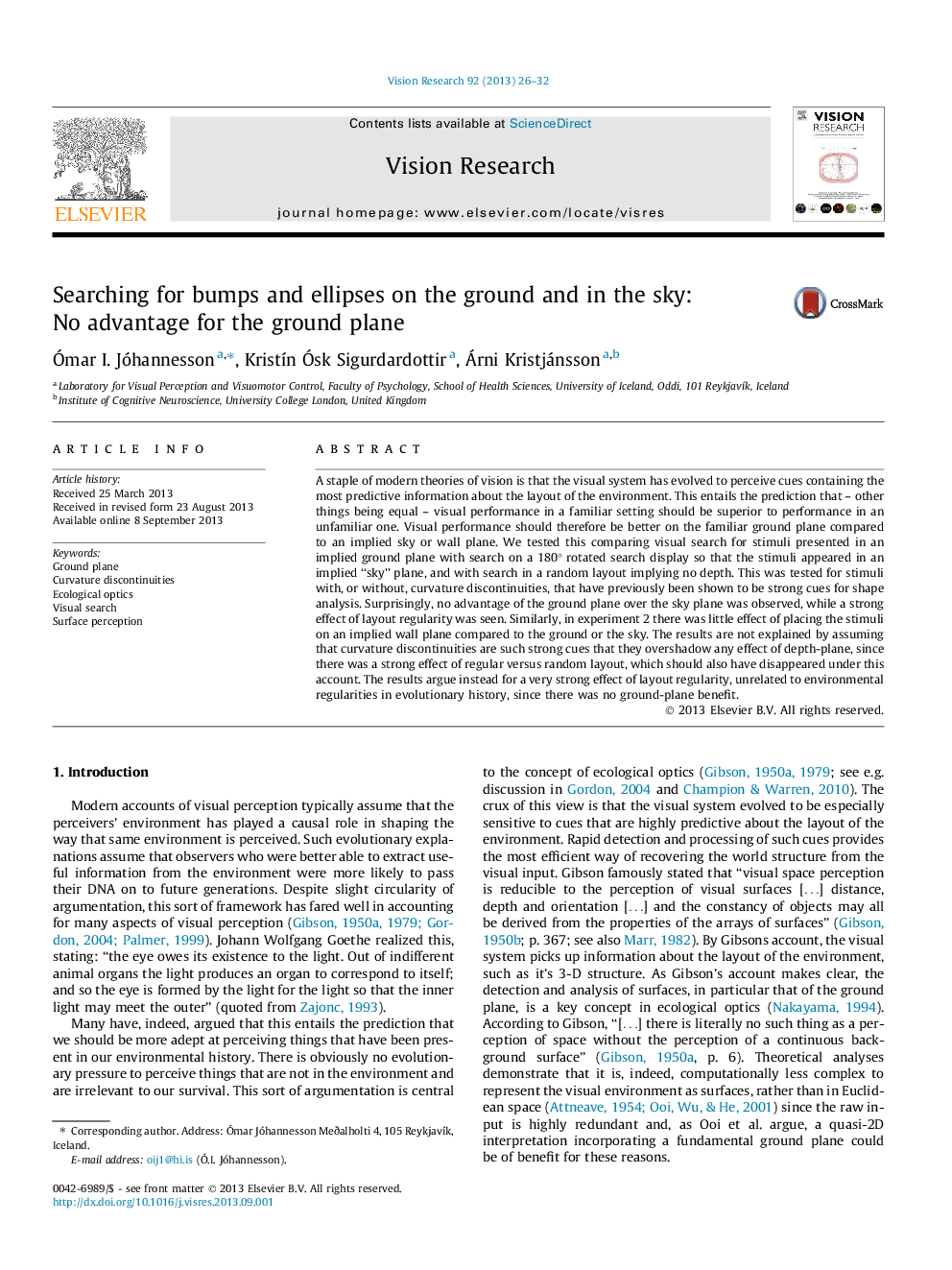| Article ID | Journal | Published Year | Pages | File Type |
|---|---|---|---|---|
| 6203559 | Vision Research | 2013 | 7 Pages |
â¢Ecological optics predict that visual performance should be best on the ground plane.â¢We found no advantage of the ground plane over the sky or wall planes during visual search.â¢Search was more efficient with cues from texture gradient and relative size, independent of plane.â¢Our results are not easily explained within frameworks based on ecological optics.
A staple of modern theories of vision is that the visual system has evolved to perceive cues containing the most predictive information about the layout of the environment. This entails the prediction that - other things being equal - visual performance in a familiar setting should be superior to performance in an unfamiliar one. Visual performance should therefore be better on the familiar ground plane compared to an implied sky or wall plane. We tested this comparing visual search for stimuli presented in an implied ground plane with search on a 180° rotated search display so that the stimuli appeared in an implied “sky” plane, and with search in a random layout implying no depth. This was tested for stimuli with, or without, curvature discontinuities, that have previously been shown to be strong cues for shape analysis. Surprisingly, no advantage of the ground plane over the sky plane was observed, while a strong effect of layout regularity was seen. Similarly, in experiment 2 there was little effect of placing the stimuli on an implied wall plane compared to the ground or the sky. The results are not explained by assuming that curvature discontinuities are such strong cues that they overshadow any effect of depth-plane, since there was a strong effect of regular versus random layout, which should also have disappeared under this account. The results argue instead for a very strong effect of layout regularity, unrelated to environmental regularities in evolutionary history, since there was no ground-plane benefit.
